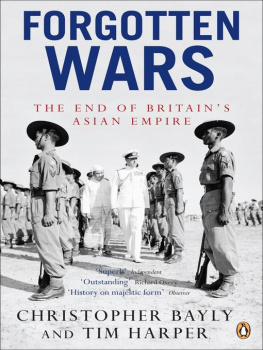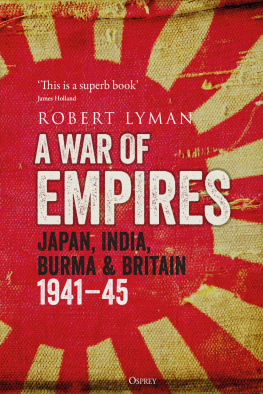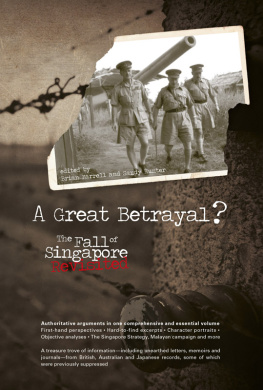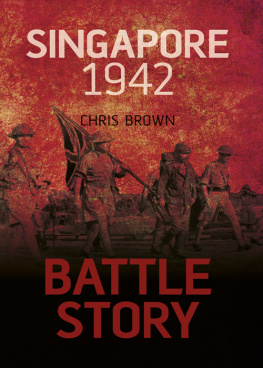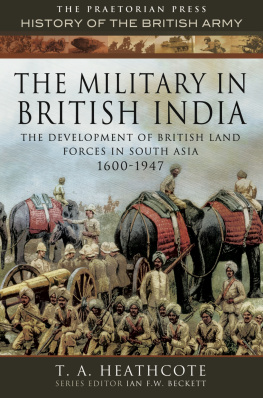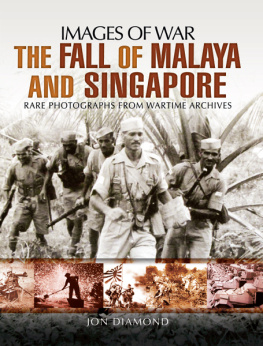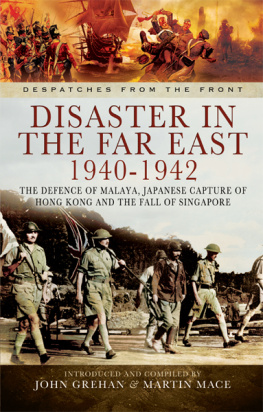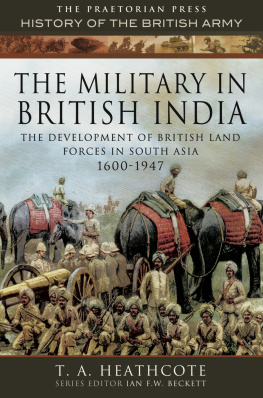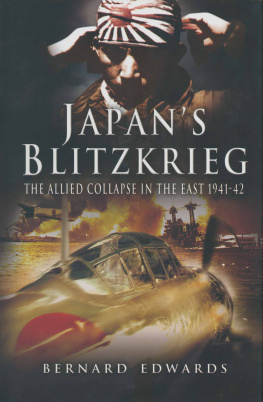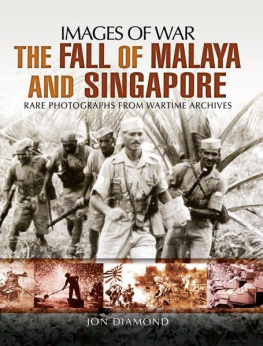Forgotten Wars
BY THE SAME AUTHORS
Forgotten Armies: Britains Asian empire and the war with Japan
CHRISTOPHER BAYLY AND TIM HARPER
Forgotten Wars
The End of Britains Asian Empire
ALLEN LANE
an imprint of
PENGUIN BOOKS
ALLEN LANE
Published by the Penguin Group
Penguin Books Ltd, 80 Strand, London WC2R 0RL, England
Penguin Group (USA) Inc., 375 Hudson Street, New York, New York 10014, USA
Penguin Group (Canada), 90 Eglinton Avenue East, Suite 700, Toronto, Ontario, Canada M4P 2y3
(a division of Pearson Penguin Canada Inc.)
Penguin Ireland, 25 St Stephens Green, Dublin 2, Ireland
(a division of Penguin Books Ltd)
Penguin Group (Australia), 250 Camberwell Road, Camberwell, Victoria 3124, Australia
(a division of Pearson Australia Group Pty Ltd)
Penguin Books India Pvt Ltd, 11 Community Centre, Panchsheel Park, New Delhi 110 017, India
Penguin Group (NZ), 67 Apollo Drive, Mairangi Bay, Auckland 1310, New Zealand
(a division of Pearson New Zealand Ltd)
Penguin Books (South Africa) (Pty) Ltd, 24 Sturdee Avenue, Rosebank, Johannesburg 2196, South Africa
Penguin Books Ltd, Registered Offices: 80 Strand, London WC2R 0RL, England
www.penguin.com
First published 2007
1
Copyright Christopher Bayly and Tim Harper, 2007
The moral right of the authors has been asserted
All rights reserved.
Without limiting the rights under copyright
reserved above, no part of this publication may be
reproduced, stored in or introduced into a retrieval system,
or transmitted, in any form or by any means (electronic, mechanical,
photocopying, recording or otherwise) without the prior
written permission of both the copyright owner and
the above publisher of this book
A CIP catalogue record for this book is available from the British Library
ISBN: 978-0-14-190980-6
Contents
List of Illustrations
Some Key Characters
Abdul Razak bin Hussein (b. 1922). Malay politician. Served in the war as a district officer; studied law in London, where he became a close associate and political ally of Tunku Abdul Rahman. Succeeded him to become second prime minister of Malaysia, 197076.
Amery, Rt Hon. Leopold, MP (b. 1873). Conservative politician. Secretary of state for India and Burma, 194045.
Attlee, Rt Hon. Clement Richard (b. 1883). Labour politician. Deputy prime minister, 19425; prime minister, July 19451952; defence minister to 1946.
Auchinleck, General Claude (b. 1884). Commander North African Front, 194042, Commander-in-Chief, India, 19437; co-ordinated India base for the Burma campaign.
Aung San, Thakin or Bogyoke (General) (b. 1916). Leading Burmese revolutionary. Commander of Burma Independence Army, 1942; defence minister under Ba Maw, 19435. President of Anti-Fascist Peoples Front Freedom League; member of Governors Executive Council 19467. Assassinated July 1947.
Ba Maw (b. 1893). Lawyer, politician and prime minister of Burma, 19379. Emerged as main collaborator with Japanese in 1942 and became Adipadi (first man) of independent Burma in 1943. Fled to Tokyo; imprisoned by Allies 1945; returned to Burma in 1946; interned following 1947 assassinations.
Boestamam, Ahmad (b. 1920). Born Abdullah Sani bin Raja Kechil. Malay novelist, journalist and politician. Founder and leader of Angkatan Pemuda Insaf, 19468. Detained 194855. Founder Partai Rakyat and leader of Socialist Front in parliament after 1959. Detained again during Confrontation with Indonesia.
Bose, Subhas Chandra (b. 1897). Bengali politician and radical leader within Forward Bloc of Congress. Arrested by British 1940, fled to Berlin 1941. Took over leadership of Indian National Army and Free India government 1943. Retreated from Imphal with Japanese in 1944. Presumed dead in plane crash, August 1945.
Burhanuddin al-Helmy, Dr (b. 1911). Leader of Malay Nationalist Party, 19457. Detained after Nadrah riots and on release became leader of Parti Islam Se-Malaya. Detained again during Confrontation with Indonesia.
Chiang Kai Shek (b. 1887). Chinese nationalist leader and generalissimo of Chinese armies fighting Japan since 1936; drawn into fighting in Burma during 1942 to keep the Burma Road open. Pressed for Allied campaign against Burma, 19434. Fought and lost civil war with Mao Zedong, 19469.
Chin Peng (b. 1924). Party name of Ong Boon Hua. Communist liaison officer with Force 136 in Perak, Malaya. Secretary general of the Malayan Communist Party from 1947 and led rebellion against the colonial government 194860. Resident in China from 1960. Signed a peace accord with the Malaysian government in 1989.
Christison, Lt General Sir Philip (b. 1893). Commanded 15 Indian Corps in Burma. Took surrender of Singapore and commanded in Indonesia. Later became ADC to King George VI.
Creech Jones, Arthur (b. 1891). Labour Colonial Secretary, 194650, having earlier headed the Fabian Colonial Bureau.
Cripps, Sir Richard Stafford (b. 1889). Labour politician. As Leader of the House of Commons in 1942, visited India to treat with Indian National Congress (the Cripps mission), and again with Labour governments Cabinet Mission in 1946. Chancellor of the Exchequer from November 1947.
Davis, John. A policeman in Perak before the war; senior Force 136 officer in Malaya, 19435. Afterwards a district officer in Malaya; escorted old comrade Chin Peng to the abortive Baling peace talks in 1955.
Donnison, Colonel Frank S. V. (b. 1898). Civil servant. Secretary to Burmese government, 193941 and its representative in Delhi, 19423. Commissioned, joined Civil Administration Secretariat (Burma) during re-conquest, 19445; later wrote official history of the war and military administration in the Far East.
Dorman-Smith, Sir Reginald (b. 1899). Governor of Burma, 19416, escaped from Myitkyina 1942. Exiled in Simla. Returned as civil Governor of Burma autumn 1945. Replaced by Attlee government May 1946.
Eng Ming Chin (b. 1924). Joined the Malayan Communist Party in Perak in 1940 and played a leading role as a womens activist in the open organization of the party after 1945. Took to the jungle in 1948, and assigned to the Malay 10th Regiment. In 1955 married Abdullah C. D. and took the name Suraini Abdullah.
Furnivall, J. S., ICS (b. 1878). Retired Burma civil servant and Fabian socialist, well connected with radical Burmese Thakins. Advised on reconstruction of Burma in Simla, 19434; returned to Burma after independence as an economic adviser.
Gandhi, Mohandas Karamchand (b. 1869). Symbolic head of Indian National Congress. Apostle of non-violence. Headed the anti-British Quit India movement of 1942. Jailed by the British for much of the rest of the war, during which time he staged a hunger strike. Assassinated January 1948.
Gent, Sir Edward (b. 1895). Colonial civil servant. As head of Eastern Section, played a major role in devising Malayan Union Plan. Governor of Malayan Union, 19468. Killed in an air crash on recall to London after the outbreak of the Emergency in June 1948.
Gracey, General Douglas (b. 1894). Commanded 20th Indian Division, 14th Army at Imphal and Kohima 1944. Occupied Saigon, French Indo-China, August 1945 to February 1946. Effectively handed back southern Indo-China to French colonial government. Chief of Staff of Pakistan Army, February 1948 to January 1951.
Next page
